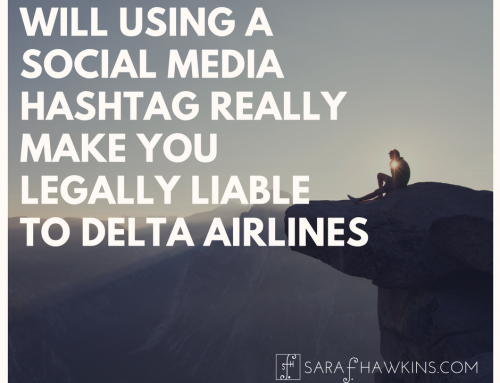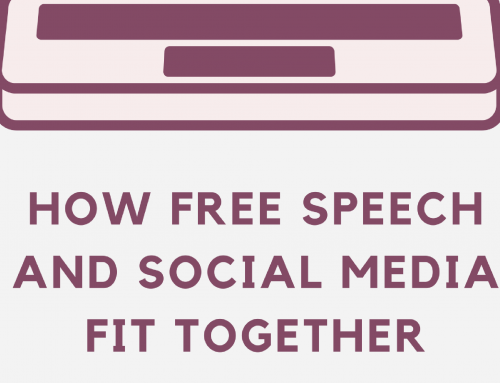
Used to be that we would upload our photos to our computers and then email them out to friends and family. Then the photo files got to be larger and larger and it become annoying to send one photo at a time. Photo sharing sites were developed to help facilitate showing our friends and family photos of our kids and vacations. Today they’re both virtual albums for the casual photographer and portfolios for the professional. It simplified things. Somewhat.
But because some people believe that if it’s on the internet it’s free, they feel they can take any photo they can access and use it for whatever purpose. Unfortunately for many images that is not true. But the fact is that many people never actually read the Terms and Conditions of signing up for a photo sharing site. And in bypassing that critical step they may unknowingly agree to a royalty-free license for anyone to use, modify or distribute their image. You may own the copyright but it’s basically worthless.
Posting Photos on Photo Sharing Sites
The big two – Flickr and Picasa – do not, by its terms, take any actions as to the copyright or license of photos you upload. Both have clearly developed Creative Commons communities which allow users to set the terms and conditions by which their photos may be used by others.
One of the major sites that is not as protective of your copyright is PhotoBucket. There are other smaller photo sharing sites that have used similar terms. By uploading your images you are basically giving up your claim of copyright because you are authorizing such a broad and sweeping license. You’re not giving the right to sell the image but that’s about all you are retaining.
By displaying or publishing (“posting”) any Content on or through the Photobucket Services, you hereby grant to Photobucket and other users a non-exclusive, fully paid and royalty-free, worldwide, limited license to use, modify, delete from, add to, publicly perform, publicly display, reproduce and translate such Content, including without limitation distributing part or all of the Site in any media formats through any media channels, except Content marked “private” will not be distributed outside the Photobucket Services.
Have you ever read the Terms and Conditions of your photo sharing site? Probably not. I don’t blame you. The type is small, a bunch of legalese and we’re so used to just clicking ‘Agree’ and being on our way.
I am just using these three because they are the largest. I highly recommend checking out if your photo sharing site allows you to maintain creative control over your uploaded imaged.
Using Photos From Photo Sharing Sites
You’re looking for a photo so you go to Flickr, PhotoBucket or Picasa and look for something that fits your post. A quick search yields seemingly endless possibilities. You choose a photo and download it to your computer so you can use it in your post. Maybe you credit with a link to the page you found it on, maybe not. You might just put the username or profile name. Depends on how you’re feeling.
The fact that you don’t know much about the image should give you pause. At minimum you should believe that the person who posted the image has the copyright on the image. Barring any information to the contrary, the person who takes a photography will normally obtain copyright in that image. Did you check to see if there were any licenses on the image? Did you specifically search for a creative commons licensed image?
Taking an image from a photo sharing site can open you up to potential problem if you do not have the right to use the image. Not every photo is licensed for use on these sites. And most that do require, at minimum, some type of attribution. Knowing what type of attribution is required is important.
If you want to use images from photo sharing sites, know what you are and are not permitted to do. If the copyright holder is gracious enough to allow you to use the image under a creative commons license, follow their requirement.
Conclusion
Know what you’re agreeing to when you post your images to a photo sharing site. And equally as important, know if an image you want to use from a photo sharing site is fully protected by copyright or subject to some license that will permit you to use it. And if you can use it, know the terms of use. Copyright protection of images when it comes to use on the web is significant.
If your copyrighted image is used without permission you’re not required to send a cease and desist before using other protections from the Digital Millennium Copyright Act. Furthermore, by using a copyrighted image you risk your site being taken down without warning. It may not seem fair, but a copyright holder has some very powerful tools to prevent unauthorized use of their images.




Really great advice, Sara! I appreciate that!
Such a great post..I had to learn the hard way. This is great advice for anyone! Thanks!
Another excellent post by my favorite American lawyer. Okay, you are the only American lawyer that I know.
Thank you for tackling these difficult subjects and laying them out plain for us to understand. I for one am guilty of not always reading the terms and conditions.
Blessings
Honey
Aww, thanks Honey!
Don’t feel bad, most people never read the Terms and Conditions. I’ve read many of them at one point or another. But when they’re 25+ pages long and full of legalese it’s hard for even a lawyer not to fall asleep reading. If you’re ever concerned about anything you post to a site that’s an indication you should take time to read or ask questions.
Sara
Very interesting blog you have there Sara. I’m learning a lot from your posts. I’m glad to find this. I will visit your site more often. Thank you.
A woednrful job. Super helpful information.
Important Law blog! I have reviewed your blog carefully; I get a Lot of important Topic from here.
Thanks
Robinson
“ Chad Wuertz”
Hi! Someone in my Facebook group shared this site with us so I came to take a look. I’m definitely enjoying the information. I’m book-marking and will be tweeting this to my followers!
Laurel, thank you for stopping by and letting me know how you found me. Please let your Facebook group know I appreciate the share! ~ Sara
[…] image on your site without permission and proper credit. WE ALL KNOW THIS, RIGHT??? Read Posting And Using Photos On Photo Sharing Sites for more […]
[…] If you can find the source of the image you can then determine if they grant a license, such as creative commons, or offer it in the public domain. If they do offer a license, either free or for a fee, comply […]
[…] took or image they created, most are not. Besides all the SEO and search-engine ranking reasons, using someone else’s work without their permission is not only wrong but also may be […]
[…] or image they created, most are not. Besides all the SEO and search-engine ranking reasons, using someone else’s work without their permission is not only wrong but also may be […]
[…] or image they created, most are not. Besides all the SEO and search-engine ranking reasons, using someone else’s work without their permission is not only wrong but also may be […]
It should be assumed that all images are covered by copyright unless otherwise stated. I would suggest contacting the owner of the image, probably in your case the company who makes the product and ask permission
[…] Guidelines for Posting and Using Photos on Photo Sharing Sites […]
Great article. We all must be aware.
Photobucket has “provided such use is not for a commercial purpose” text.
“By making your content public, you are also giving other Members on Photobucket the right to copy, distribute, publicly perform, publicly display, reproduce and create derivative works from it via the Site, third party websites or applications (for example, via services allowing Members to order prints of Content or t-shirts and similar items containing Content, and via social media websites), provided such use is not for a commercial purpose.”
Let’s say a person has copied a photo from photobucket and that copy is hosted on a wordpress.com blog. Isn’t wordpress.com a commercial service? Don’t they make money from the payed blogs? Doesn’t wordpress make money from ads?
Can the blogger still contest the takedown notice saying their blog is not a commercial use? How should wordpress react?
WordPress.com has both free and paid options. The specific website may or may not be commercial depending on whether they use ads, sponsored/paid content, have outbound affiliate links, etc. ‘Commercial’ has a general legal definition with relations to commerce and business activity. There are many users of the wordpress.com platform that post content without out any commercial intent even if they have a paid account. There is a big difference, though, between the image being used for a commercial purpose and the platform being a commercial venture. In addition, even if it were for a commercial purpose, if the use is covered by Fair Use laws the commercial purpose limitation may not be relevant.
The only grounds for contesting a DMCA takedown is that the use was permitted by law or license. That determination is on a case-by-case basis.
Hope this helps!
thanks for sharing such stuffs